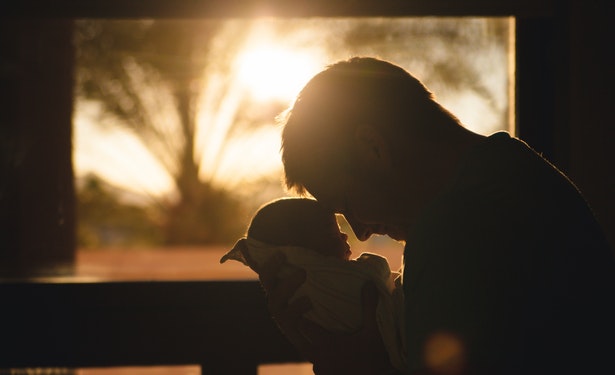Postnatal depression in dads: 10 things you should know
Whether it’s sleep deprivation, money worries, new responsibilities, or the relationship dynamic shifting, dads also have a lot to take on board. This is a huge life change for both parents. On top of this, dads might feel guilty about what their partner is going through, knowing they aren’t the ones breastfeeding at 3am or healing from labour and birth.
Here’s what you need to know about postnatal depression in men.
The NCT Team
1. Dads can experience depression in the first year after birth
The number of men who become depressed in the first year after becoming a dad is double that of the general population.
First time dads are particularly vulnerable. One in ten dads-to-be will also become depressed during their partner’s pregnancy.
2. Postnatal depression in men often goes undiagnosed
The peak time for postnatal depression in men is three to six months after the birth.
As with postnatal depression in mums, it often goes undiagnosed. The symptoms can look a lot like the everyday stresses of having a newborn.
"If you have concerns about your own or your partner’s mental health, do seek help from your GP who can help you to access support services."
3. Hormonal changes can play a role
Just as with mums, changes in hormones might make postnatal depression in dads more likely.
Hormones including testosterone, oestrogen, cortisol, vasopressin, and prolactin may change in dads during the period after their babies arrive.
4. Postnatal depression in dads is more likely if there is maternal postnatal depression too
If one of you is experiencing emotional or mental health difficulties, it's more likely that the other is too. Of fathers with depressed partners, 24% to 50% experience depression themselves.
5. A range of factors can make dads more likely to get postnatal depression
Dads who are under 25 are more likely to go through postnatal depression than their older counterparts.
Yet age isn’t the only risk factor for postnatal depression in men. Other major risk factors include a history of depression and anxiety; financial pressures;and evidence also shows that not being in a relationship with the child’s mother.
Other factors that make postnatal depression in men more likely include: sleeping or crying issues with the baby; drug abuse or dependence; and feeling unsupported by their partners.
However, the cause and effect is unclear so these factors might not necessarily be the direct cause of mental health difficulties.
6. Postnatal depression in dads can show itself in different ways
Symptoms can include:
- fear, confusion, helplessness and uncertainty about the future
- withdrawal from family life, work and social situations
- indecisiveness
- frustration, irritability, cynicism and anger
- marital conflict
- partner violence
- negative parenting behaviours
- alcohol and drug use
- insomnia
- physical symptoms like indigestion, changes in appetite and weight, diarrhoea, constipation, headaches, toothaches and nausea.
7. Postnatal depression in dads can take its toll on their relationships
Postnatal depression in dads can affect their relationship with the baby’s mother. It can also affect the relationship they have with their child. They may play and engage less with their children and talk more negatively about and to them. They may sing and read less to their children, and may discipline them more harshly.
8. Postnatal depression in dads can have an impact on the development of their child
Dads’ depression is associated with emotional, social and behavioural problems as well as developmental delay in their children.
The association is stronger when a father experiences antenatal as well as postnatal depression, and when his symptoms are particularly severe. There is also a stronger association when mum also has mental health problems.
9. Screening is available
You might associate screening more with physical illnesses but mental health diagnoses are slowly catching up. Men who are concerned should pop over to NHS Choices and use the depression screening tool. If you’re concerned, see your GP or call NHS 111.
10. Postnatal depression in dads is treated the same as postnatal depression in mums
The treatment of paternal postnatal depression is in its early stages. Currently, the options for treatment are the same as for mothers with psychotropic medication and/or talking therapies.
Relationship counselling may also be useful.
Most, importantly share how you're feeling. You're not alone and support is available.
Further Information
The NCT support line offers practical and emotional support in all areas of pregnancy, birth and early parenthood: 0300 330 0700. We also offer antenatal courses that are a great way for both parents to find out more about birth, labour and life with a new baby.
For information and support, visit Fathers Reaching Out run by Mark Williams, campaigner, speaker and writer.
The Campaign Against Living Miserably (CALM) is leading a movement against male suicide, the single biggest killer of men under 45 in the UK.
The Hub of Hope is a national mental health database, bringing help and support together in one place, with a focus on grassroots organisation.
ANDYSMANCLUB is a non judgmental, talking group for men.
DadsNet offers support and knowledge through a community of dads on practical parenting and fatherhood.
Content source: https://www.nct.org.uk/life-parent/emotions/postnatal-depression-dads-10-things-you-should-know

